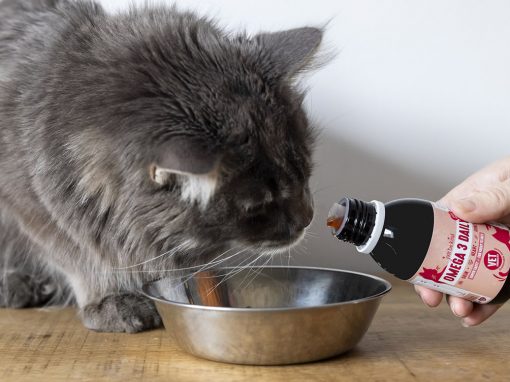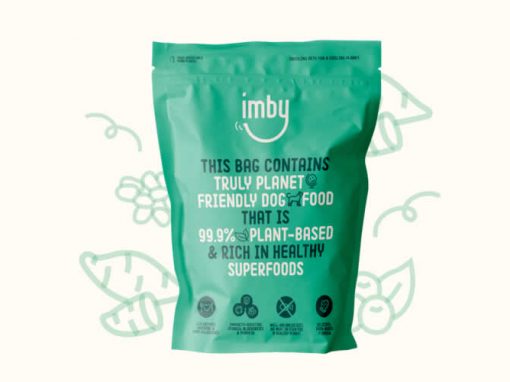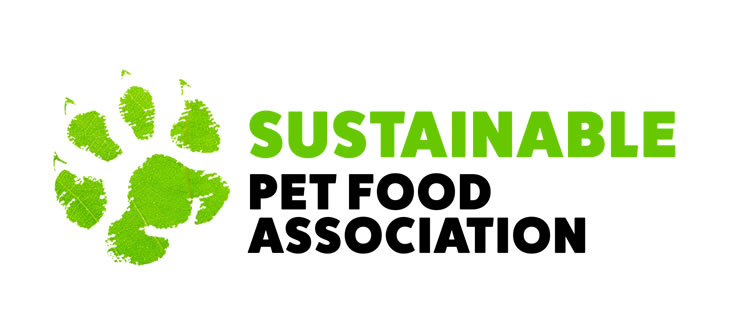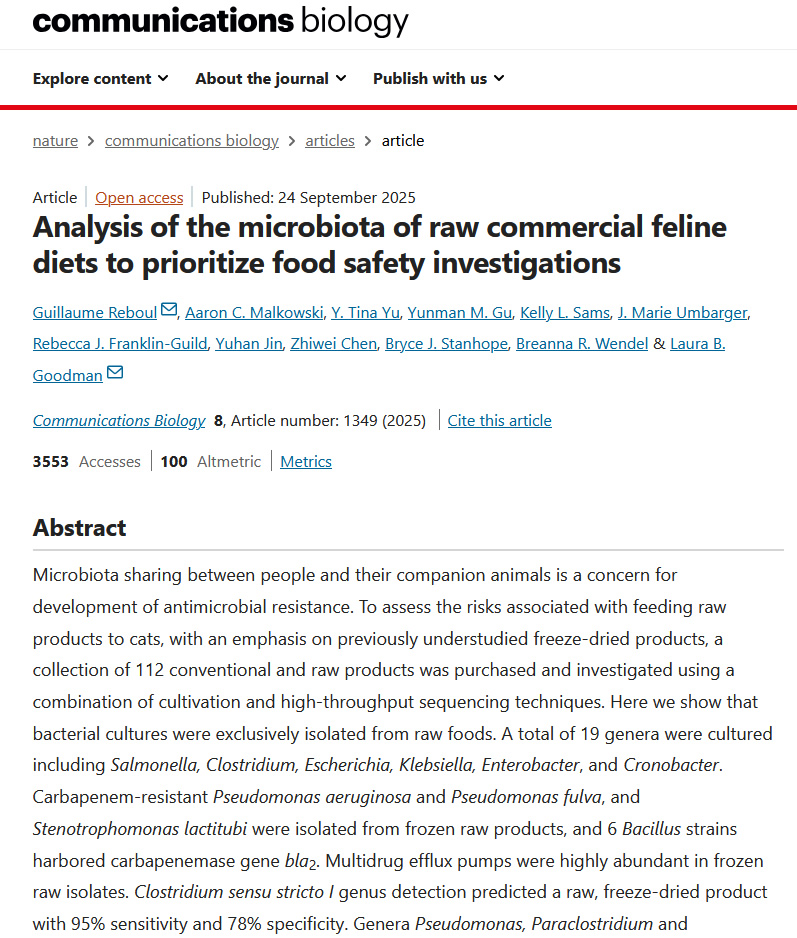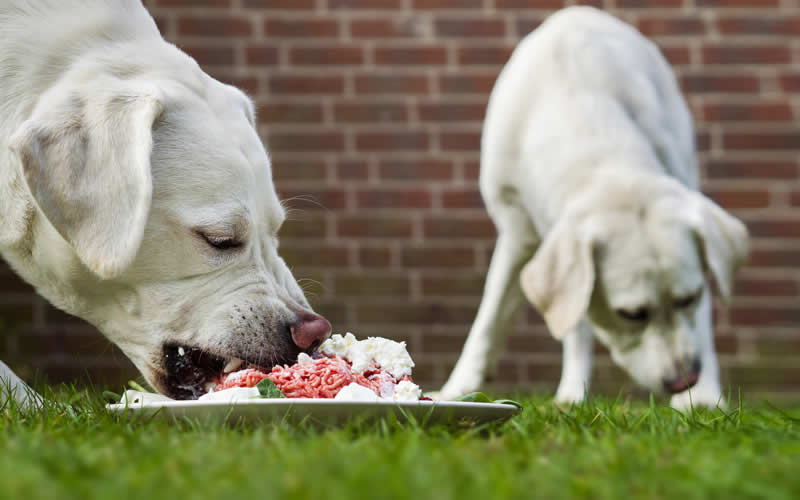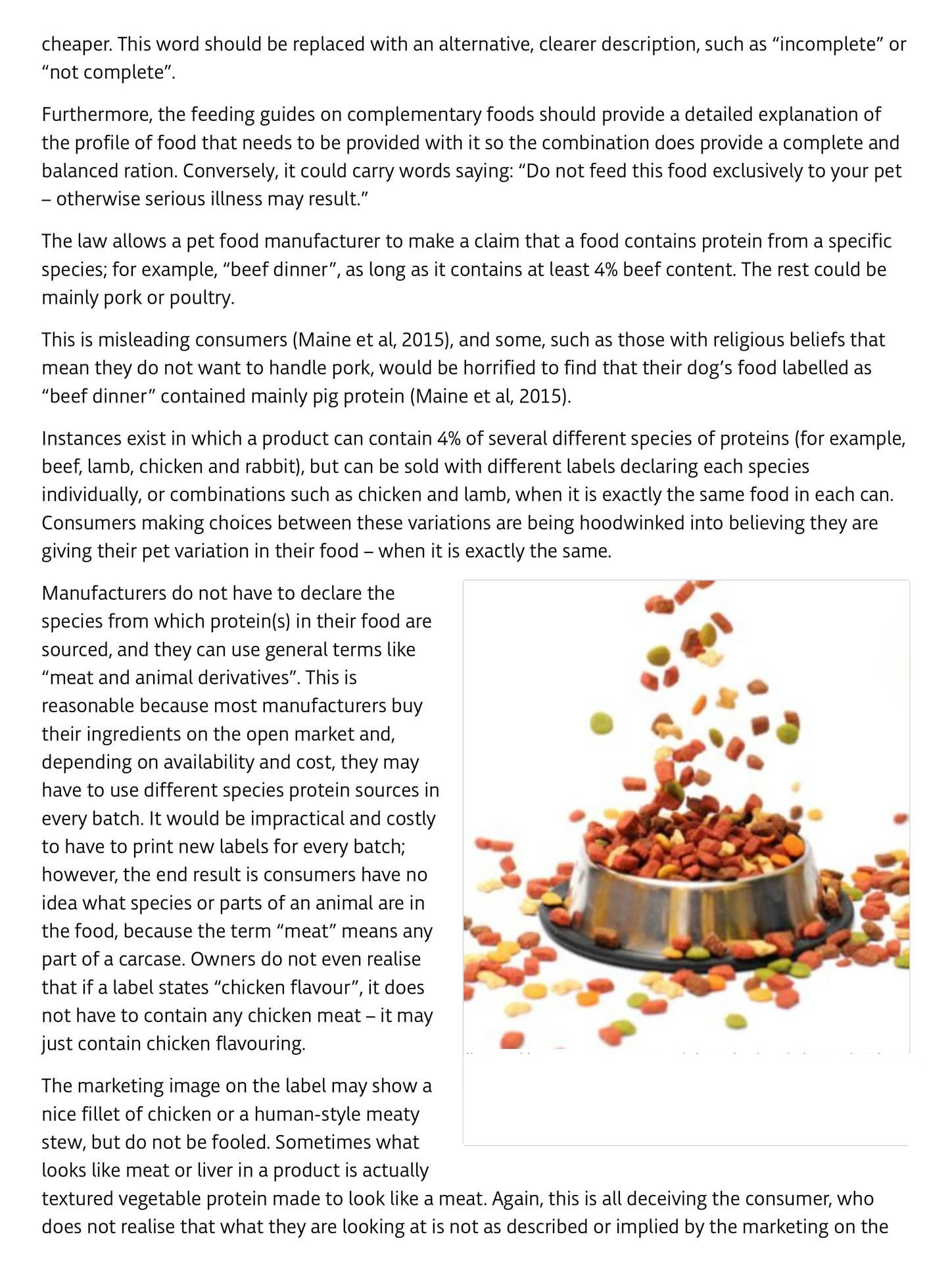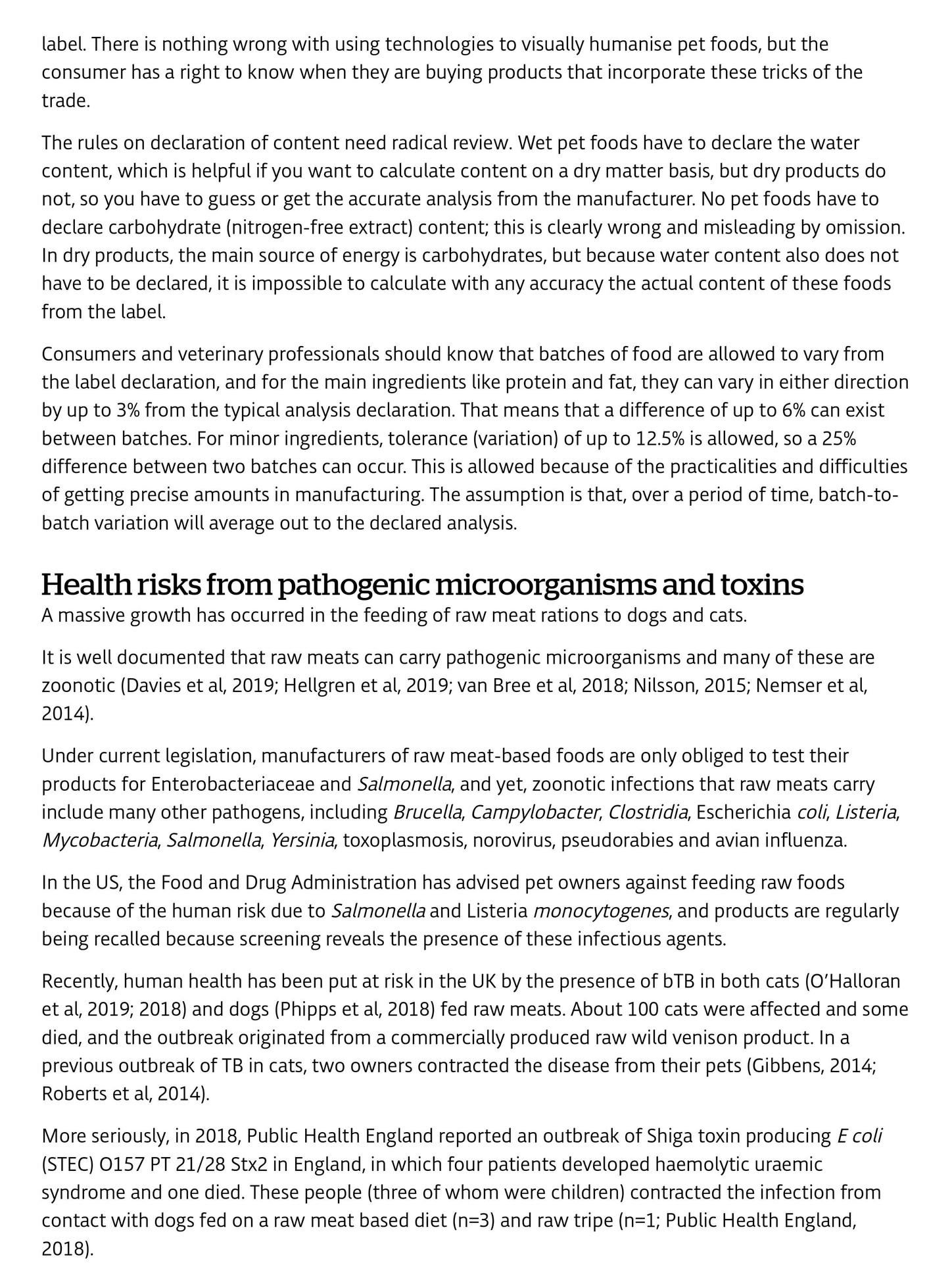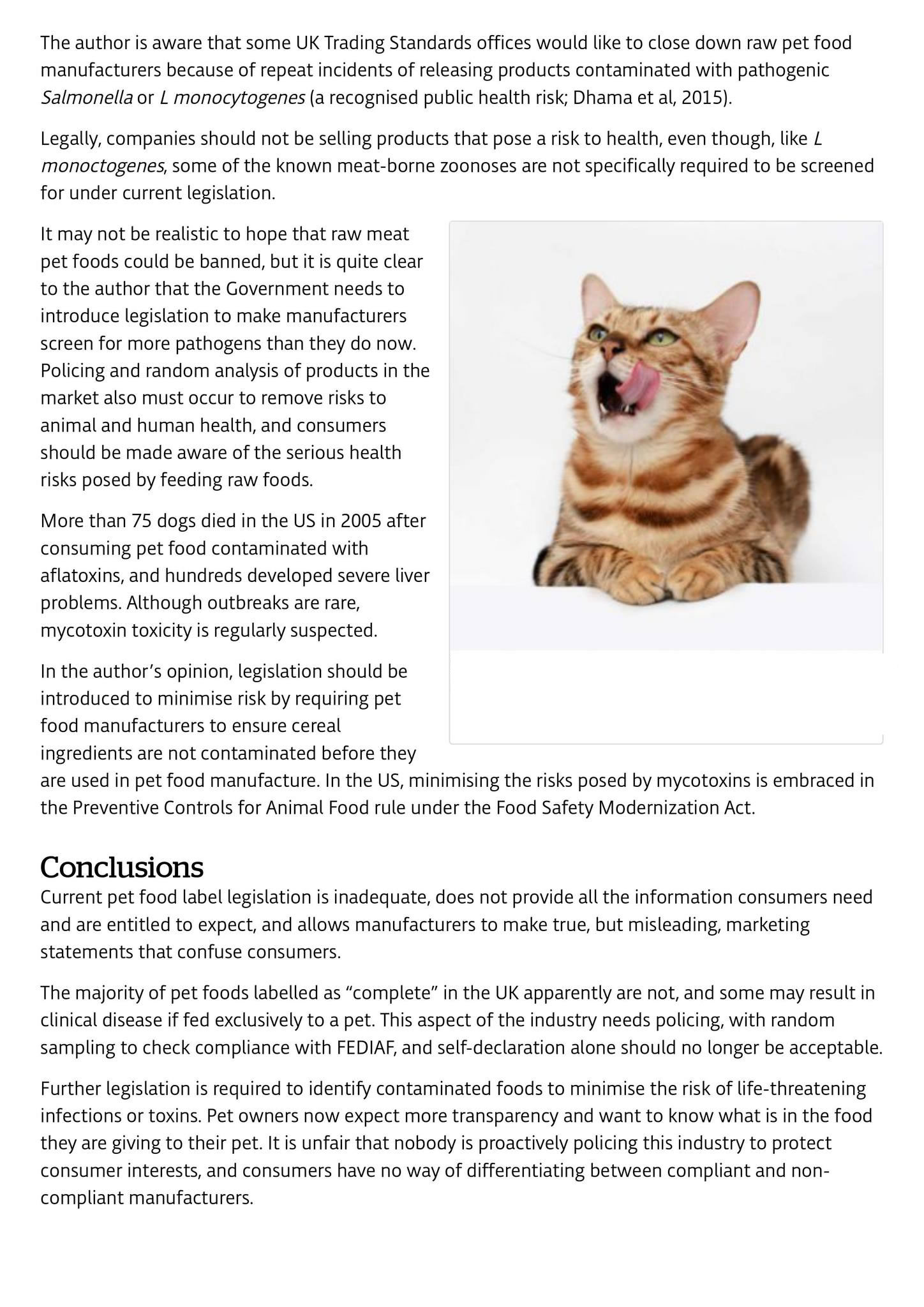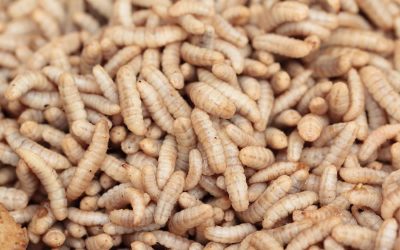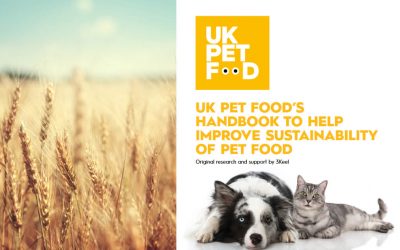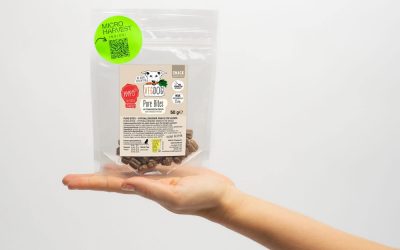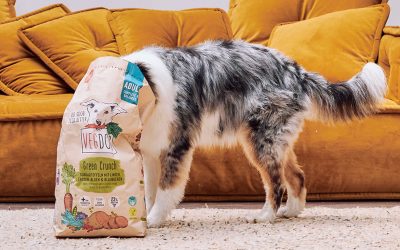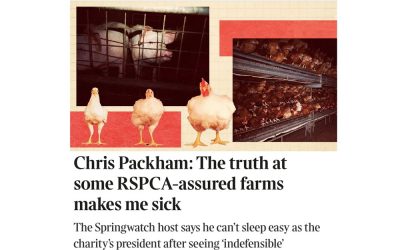A very concerning article in October 2025 when we read about UK Petfoods ‘Rawsafe stamp’ for raw foods in the UK; is the very real and always present danger of this latest study yet again finding antibiotic-resistant bacteria in raw commercial cat foods!
An analysis of 112 commercial cat food products found pathogenic bacteria and antimicrobial resistance genes exclusively in raw and partially cooked foods, posing potential health risks to cats and their human caregivers, according to this study.
The study, published in Communications Biology, detected 19 bacterial genera in raw cat foods, including Salmonella, Clostridium, Escherichia, Klebsiella, Enterobacter and Cronobacter. No bacterial cultures were isolated from the 27 conventional, fully cooked products tested.
According to the study, microbiota sharing between people and their companion animals raises concerns for development of antimicrobial resistance. The study noted the presence of pathogenic species and antimicrobial resistance genes in raw commercial food products could deliver health risks to cats and the families who care for them.
What concerns do we have with antibiotic resistance in raw dog foods?
We are very aware of the enormous dangers of antibiotic resistant E-Coli bacteria in raw meat with this paper released urgently in April 2020 when every country was in lockdown. A news story was published soon after linking raw feeding of dogs to antimicrobial resistance which could very well be the next pandemic we are faced with.
The Science Times reported findings from the European Congress of Clinical Microbiology & Infectious Diseases (ECCMID) as ‘raw dog food contains significant amounts of antibiotic-resistant bacteria, making them a public health risk to Europe and the rest of the world.’
What are the facts:
- The investigation was lead by University of Portugal’s researchers.
- The findings have been published in the International Journal of Food Microbiology.
- 46 different dog foods, from 24 brands were analysed for Enterococci. 23 were available in supermarkets and pet shops, 1 from veterinary practices. 22 wet diets, 15 dry and 9 raw-frozen. Brands were international, not only Portuguese.
- The raw diets tested contained duck, turkey, chicken, salmon, lamb, goose, beef, and vegetables.
Antibiotic resistant bugs can render minor injuries and common infections potentially deadly.
Resistance has grown in recent years because of the overuse of such drugs in humans and farm animals.
The bacteria can live harmlessly in human and animal intestines but can be dangerous in other parts of the body and can be resistant to antibiotics.
Researchers found that all of the raw dog food samples contained antibiotic-resistant Enterococci, including bacteria resistant to the last-resort antibiotic linezolid.
Genetic sequencing revealed that some of these antibiotic-resistant bacteria in the raw dog food were the same kind found in hospital patients in the UK, Germany and the Netherlands.
“The close contact of humans with dogs and the commercialisation of the studied brands in different countries poses an international public health risk,” said researcher Ana Freitas.
“European authorities must raise awareness about the potential health risks when feeding raw diets to pets and the manufacture of dog food, including ingredient selection and hygiene practices, must be reviewed.”
In a separate study, which has not yet been submitted to a medical journal for publication, another team from Portugal tested pet owners and animals from 80 households for bacteria with the MCR-1 gene, which provides resistance to the last-resort antibiotic colistin.
All 126 humans were healthy, while half of the 102 pets sampled had either skin or urinary tract infections.
Four humans and eight dogs tested positive for bacteria carrying MCR-1, and in two households the gene was found in both the dog and its owner.
“Genetic analysis of the samples suggested that in one of these two cases, the gene had been transmitted between pet and owner,” he research said, adding that it was thought the gene passed from dog to human.
This raised concerns that pets could spread resistance to last-resort antibiotics.
The WHO classes antibiotic resistance as one of the greatest public health threats facing humanity. Drug-resistant infections kill an estimated 700,000 people a year globally and the UN has warned that could rise to 10 million by 2050 if no action is taken.
Summary of the findings:
* 19 samples of dog food out of 46 contained Enterococci.
* All 9 of the raw dog food samples contained multidrug-resistant Enterococci. Genetic sequencing showed some of the resistant bacteria in the raw dog food were identical to bacteria isolated from hospital patients.
* 40% of all samples containing Enterococci were resistant to erythromycin, quinupristin-dalfopristin, streptomycin, tetracycline, gentamicin, ampicillin, ciprofloxacin, or chloramphenicol. All antibiotics we rely upon to treat common bacterial infections.
* 23% of samples containing Enterocci were resistant to linezolid. This included 78% of the raw-frozen diets tested. This is an antibiotic used as a last resort, when bacteria is resistant to more commonly used antibiotics.
* 3 of the 19 non-raw samples contained multidrug-resistant bacteria.
The study concluded:
Raw-frozen foods for dogs carry multi-drug resistant enterococci including last-resort medication for the treatment of human infections (linezolid). The close contact of pets with humans and the commercialisation of the studied brands in different EU countries pose an international Public Health risk if transmission of such strains occurs between dogs and humans.
Dr Freitas, one of the researchers, said “European authorities must raise awareness about the potential health risks when feeding raw diets to pets and the manufacture of dog food, including ingredient selection and hygiene practices, must be reviewed.”An outstanding article from vet nutritional specialist Dr Mike Davies, re pet food in general (most of which is meat-based) appeared in Vet Times January 2023. See sections of what he wrote about raw food and the risk that it still holds in the attached articles.
Studies claim positivity with alternative pet diets
Many owners willing to consider alternative pet diets, studies claim with a high proportion of cat and dog owners now prepared to explore alternative, more sustainable diet options
Plant-based vs Insect-based dog food
Insect Protein-Based Diets as Potential Risk of Allergy in Dogs, and Higher Cost
Avian Flu Pandemic Risk from Raw Feeding
The APHA (Animal Plant and Health Agency.gov.uk) sends anyone interested in environmental matters, emails about looming threats. As a vet, this is what I have received recently in my email inbox - In my inbox yesterday 11th November - An Avian Influenza Prevention...
UK Petfoods MUST Keep Up!
Using animal byproducts in meat and fish-based pet foods is NOT sustainable!
Cats dying after eating Avian-Influenza-contaminated raw pet food!
Does vegan cat food provide the solution?
Fermented Protein Pet Food – the Future?
Is precision fermentation our future way to feed not only our pets, but ourselves too? Yes it most certainly is!
Could our dogs or cats trigger an avian influenza pandemic?
As our memories of the last COVID 19 disappear, the potential for another pandemic looms and pets could play a role in transmitting it
Using microbial protein for the very first time in dog treats!
This first-of-its-kind protein is derived from bacteria that have been consumed by humans for centuries in foods such as kimchi, kefir, and sauerkraut
BVA says it is possible to feed dogs plant-based
The British Veterinary Association (BVA) has ended its opposition to (nutritionally-sound) vegan diets for dogs
The truth about ‘RSPCA Assured’ farms
The footage obtained from these farms, including distressing images of decomposing pigs, dying chicks, and salmon with missing eyes, is simply indefensible
The Great Protein Debate – Beef or Beans?
Dr Sue Paterson, RCVS President and Senior Vice President of the European Society of Veterinary Dermatologists interviews Dr Arielle Griffiths about Sustainable Pet Foods
University of Liverpool Vegan Dog Food Study
Prof Alex German holds the position of Royal Canin Professor of Small Animal Medicine at the University of Liverpool
Recommended sustainable pet foods
